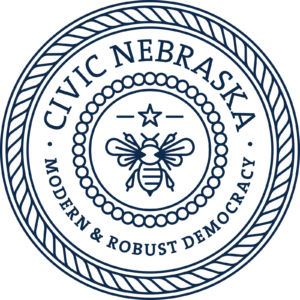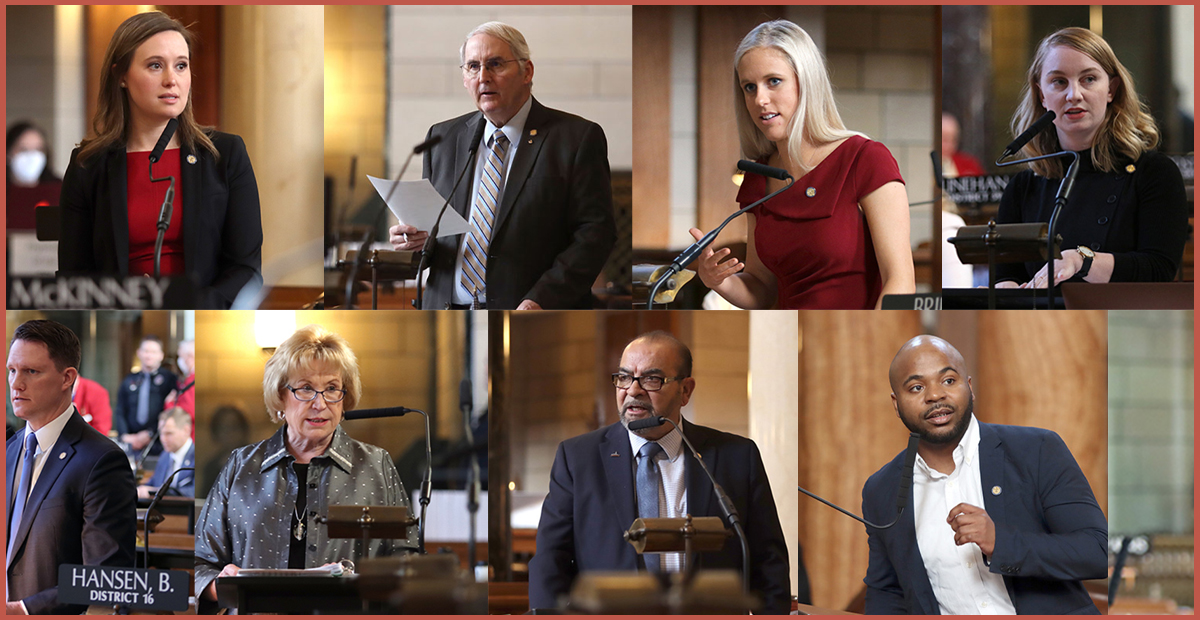The Nebraska Legislature convenes on Jan. 4 with 12 new senators joining the body and two returning members who had previously been term-limited out. That’s a 25 percent turnover, making for an unpredictable session as new senators explore their policy positions, develop alliances, and reveal their skill sets.
Rules
On the first day of each biennium — or two-year — Legislature, senators vote to adopt the legislative rules. This is usually a pro forma and unremarkable vote, but in the last campaign cycle, failed gubernatorial candidate Charles Herbster pressured legislative candidates and sitting senators to sign a pledge saying they’d change these rules to end the use of private ballots when senators select their speaker and committee chairs. At least 24 of 49 senators signed it.
Making these votes public would mean the majority party can pressure members to elect only members of that party and would deal a huge blow to the 90-year tradition of nonpartisanship in our Legislature. Some are also hoping to alter the threshold for ending a filibuster to benefit the majority party. Former speakers and senators of both parties are calling for this body to protect the unique and long-standing nonpartisan nature of our legislative structure, and editorial boards from Lincoln to North Platte are doing the same.
Elections and voting rights
The Legislature will consider a bill enacting a voter ID requirement, the details of which remain to be seen. While we came up short at the polls on the question of sending this issue to the Legislature, we are still working for the best possible outcome on this issue for Nebraskans.
We’re also working hard to make this the year that Nebraska does away with its arbitrary two-year wait before people who have served felony sentences are able to vote. There’s no reason for this civil right to be delayed and we’ve amassed a coalition of partners working to restore it.
We’ll keep you posted on other election-related bills introduced over the next two weeks – and what you can do to help protect voting rights in the Cornhusker State.
Other issues
This will be the first Legislature following the U.S. Supreme Court ruling on Dobbs in June, which ended the 50-year precedent for legal abortion throughout the United States and now allows states to determine their residents’ access to abortion. Many states had previously enacted “trigger” laws anticipating this ruling, making some state abortion bans automatically go into effect. Nebraska senators filibustered such a bill last year and now are facing the likelihood of a new ban introduced for this new and unpredictable legislative body to consider. This will be a nail-biter.
In odd-numbered years, the Legislature convenes for a long session, meaning it can last up to 90 legislative days. In even-numbered years, it can meet for 60. The longer session is designed to allow additional time for debate of the two-year state budget, which is the only bill the Legislature is constitutionally required to pass. Nebraska is fortunate to have an unprecedented projected surplus of $620 million (!) recently added to the cash reserve.
This sounds like good news, but as a wise man once said: mo’ money, mo’ problems. Some senators will jockey to allocate funds for pet projects to benefit the state, others will fight to return the unspent funds in the form of tax cuts, and still others will try to save it to fall back on during what could be a looming global recession.
We’ll keep you up to date with developments on voting rights and election law in the coming months, but for general information about what the Legislature is up to, watch the Legislature’s nonpartisan news source, the Unicameral Update.
As always, thanks for helping us advocate for more modern and robust elections for all Nebraskans.
Best,

Heidi Uhing, Director of Public Policy
Civic Nebraska


